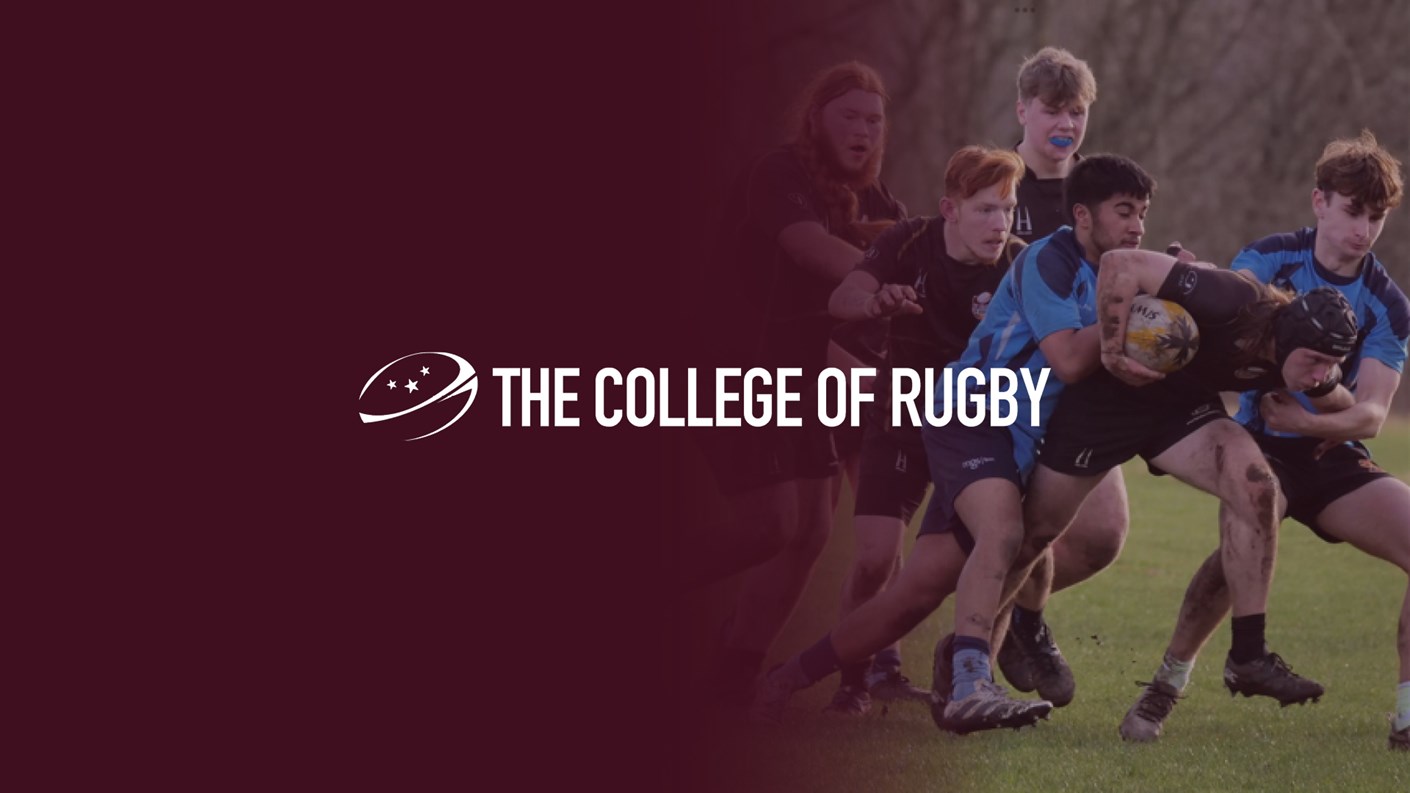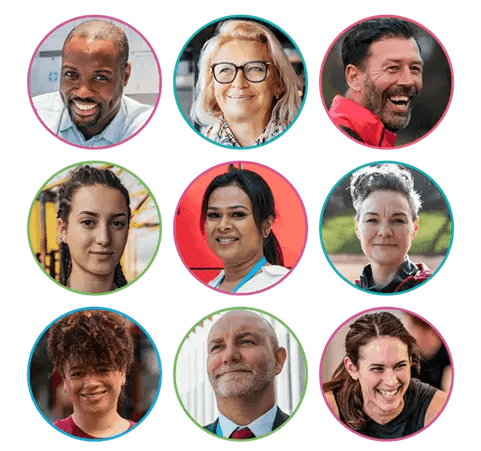Employer partner creates opportunities for young learners
Talking education, employer partnership and rugby, we spoke to Kenneth Orr of The College of Rugby about the unique learning experience on offer
An experienced rugby coach, Director of Operations Kenneth Orr set up the nation’s first college embedded in a working rugby union club five years ago. Alongside his long-time colleague Mark Withington, he has created an extraordinary offering that allows young people to gain the skills needed to access a long-term career in sport and physical activity.
With just five members of staff, The College of Rugby is hardly a major educational institution. What it does have, however, is a unique opportunity for students to gain experience of the professional world. Based in Sedgley Park’s working rugby club and partnered with YMCA Awards for its teaching, the school provides the perfect blend of the practical and the academic.
A further education college with a focused offering, the rugby experts offer a BTEC Level 3 qualification in sports coaching and development as well as additional professionally recognised credentials available through the Rugby Football Union. This provides learners with a full complement of specialised and practicable skills to work in the sport and physical activity sector.
The business has been a CIMSPA Employer Partner for some time now, ensuring that it provides teaching excellence by supporting its staff and engaging with sector-wide professional standards.
Ethos
The college revolves around a strong mantra:
“Believe. Educate. Achieve.”
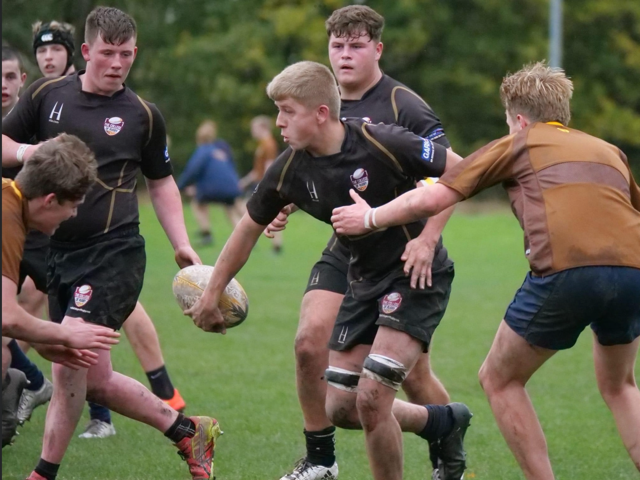
In application, this drives Kenneth and his colleagues’ commitment to helping young people to move on from mainstream education and create a career for themselves. This is particularly potent in their work with students enrolling from pupil referral units as well as those classed as not in employment, education or training (NEET). Generally, these are young adults who have been ejected from mainstream education for a myriad of reasons. Kenneth reflects that “some of them have behavioural challenges, but what they need is structure and guidance of some form”.
In recent years, mainstream education has come a long way in terms of identifying, diagnosing and supporting learning difficulties. However, with schools struggling for resources, it is still difficult for teachers and support staff to offer the focused attention required for students with additional needs to flourish.
The College of Rugby has the ability and facilities to offer them this in a very different environment to a typical classroom, with the school offering small class sizes and a focused curriculum. It is a great source of pride for Kenneth that they are able to work closely with young people who have struggled in the past.
Supporting students
This year, the college is supporting three new first years who have special educational needs. They are learning within the mainstream tuition of the college, and two are completing the core level three qualification. The other student is being supported to find a qualification that will help them to progress and move towards a career. As Kenneth puts it, “Why shouldn’t they have the same opportunity as other young people?”
As he continues to explain the mentality at The College of Rugby, it’s clear that the Director of Operations has a passion for empowering this demographic:

“Education’s all about creation – the creation of opportunity, vision, horizon and possibility. That’s what I engender into what we do, even with the pupil referral unit and NEET students.
“Let’s show them that their education is not done with just because they’ve been asked to leave school. Let’s show them that they can do something that they enjoy and that engages them. That’s really important and can help them push forwards and create something for themselves.”
Kenneth comments that often, young people are in pupil referral units or are NEET because they have struggled to find a subject or career to latch onto. While the crossroads all learners face at the end of their compulsory education is generally daunting, it can be extremely difficult for those with no clear paths on which they can succeed. Many arrive at The College of Rugby having had the idea that education isn’t for them instilled from an early age.
Kenneth recounts the story of a student who found it difficult to cope in school and came to the college from a pupil referral unit. Having thrived while gaining his sports qualification at Sedgley Park, he has now gone on to study at university. It is a great achievement for Orr and his team to have equipped a young person with the confidence and skills to integrate into mainstream higher education, but he places more emphasis on ensuring that the learners are proud of their own accomplishments:
“As much as I’m proud of that, I don’t need to hold it up as an achievement for me. I need to see our students recognise what they’ve gained and be proud of themselves.”
Practical learning
Whatever educational background they have, all students at the college have one uniting interest – they all love rugby. Where the rugby school has to work to drive engagement is in converting a passion for sport into a desire to study and make a career from it. At sessions in schools and through conversations with parents, teachers and young people, the key is for the educators to demonstrate the progression open to those with the practical qualification and the sustainable careers available in the sport and physical activity sector.
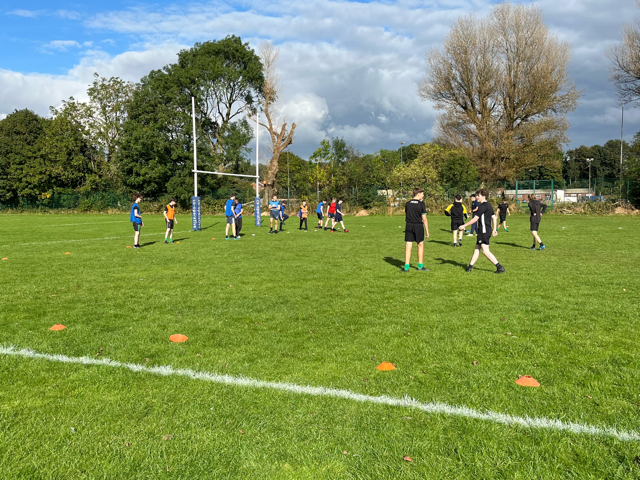 With the Level 3 BTEC being worth three A levels, the academic value is self-explanatory. Kenneth works harder to explain how the course content, ranging from fitness training to event management, presents a broad range of possibilities in the fast-moving sport and physical activity sector. He uses a neat metaphor to illustrate:
With the Level 3 BTEC being worth three A levels, the academic value is self-explanatory. Kenneth works harder to explain how the course content, ranging from fitness training to event management, presents a broad range of possibilities in the fast-moving sport and physical activity sector. He uses a neat metaphor to illustrate:
“I liken what we do – equipping students with knowledge and skills – to creating a bunch of keys. The more keys a person can add to their key ring, the more doors they can open. That allows to you open any door – you might decide you don’t like what’s behind it, but you are able to then open a new door. You’ve always got that key, though, so you can go back if you want. If you don’t have any keys, you don’t have actionable pathways to choose from and you miss out on opportunities. The learning that we offer allows young people to give themselves viable options for a range of careers.”
A core component of the college’s delivery of these opportunities is being situated within a working rugby union club. Students gain an immediate understanding of a real professional environment through seeing it unfold on a daily basis. By supporting at club events, hosting School Games conferences and of course assisting at regular matches, students are able to learn the ropes in sporting events – a major sector industry – first hand.
This is also the case for topics that may seem more abstract at first glance. Applying classroom theory to training sessions is essential to ensuring that complex information such as physiology knowledge is retained and fully understood by the students. With coaches boasting relevant qualifications in topics such as sports science, they are able to take what is taught in a morning class out onto the field, querying ligaments in action, potential for injury and more.
As Kenneth explains, each element of a day at the college involves learning and cementing knowledge, with even tidying up equipment forming training on management and planning. Through opportunities to put this all into working practice with experience coaching, refereeing and running sessions, they are also able to gain skills in communicating their proficiency in a professional way.
Orr holds fast the idea that “all learning is the practical application of acquired knowledge”. The real-life experience of a working club, the teaching style and the students’ often diverse backgrounds provide a wealth of information for students to build opportunities for themselves on the basis of this mantra.
CIMSPA partnership
To reinforce the quality level of the college’s offerings, it was important to Orr to become a CIMSPA Employer Partner. With increased training opportunities for staff, partnership has allowed The College of Rugby to ensure that it creates a professional environment for both its employees and students. This will only become more important as the college expands and increases its workforce.
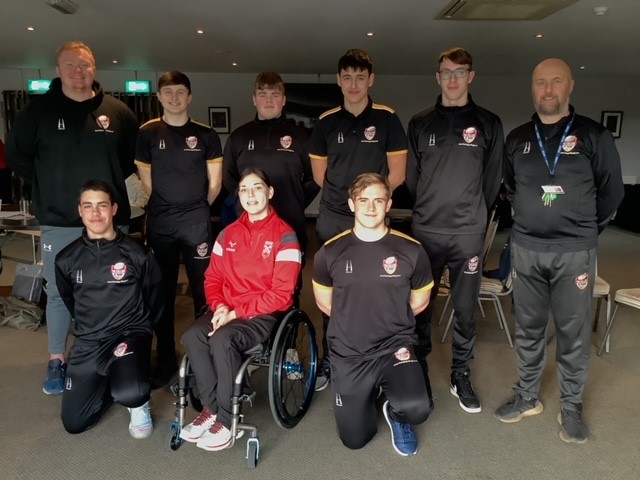
The Director of Operations also described how the partnership has benefited students in terms of further opportunities:
“CIMSPA partnership allows us to be a conduit. With that link, we can guide our students through CIMSPA into other opportunities within sport and physical activity that are also quality assured by the professional body for the sector.”
This is an excellent example of the CIMSPA strategy, Releasing the Power of our Profession, in action. With collaboration between sector stakeholders and increasing recognition of quality-assured learning, more people are able to forge an education and career pathway in the sport and physical activity sector.
The connection with the chartered institute for the sector workforce has also allowed the business to gain a unique platform. Lacking the funding that mainstream further education colleges receive or the major network to generate sponsorship interest, the college has benefited enormously from creating a dialogue with CIMSPA. The partnership has meant that The College of Rugby has become aware of potential funding pots able to support the school and been able to connect with potential sponsors. Kenneth is extremely grateful for the backing that CIMSPA has provided:
“Tara Dillon is incredible. She’s a great champion of ours and is talking at cabinet level in a way that helps us to facilitate the learning, inspiration and achievement that we offer to young people.”
Become a CIMSPA Employer Partner
Wider work and the future
Currently, the college works closely with the local authority. While they are now engaging with mainstream schools to approach potential students, Kenneth suggests that there is more to be done with here as well as with local community groups – involving effort from both The College of Rugby and its potential collaborators.
Once students are engaged, though, they have sector support for life. Orr recounts recent conversations with graduates from the college:
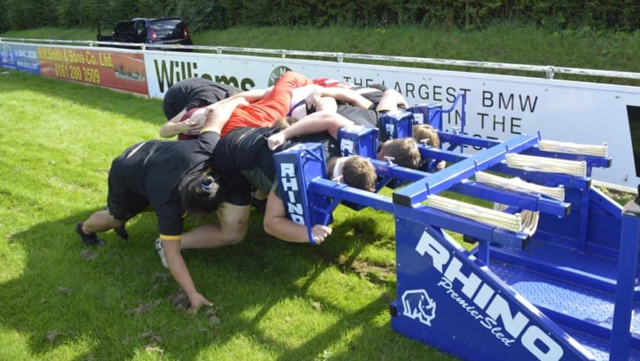 “This week alone I’ve had four different ex-students call me up. One became manager of some care homes after graduating, but he called to ask for advice on becoming a gym instructor. Another is looking to move into higher education. One wanted guidance about getting involved with Camp America while another was asking about finalising further coaching qualifications to become a rugby coach and work with young people. It’s fantastic to hear where their learning is taking them and to be able to support them in that.”
“This week alone I’ve had four different ex-students call me up. One became manager of some care homes after graduating, but he called to ask for advice on becoming a gym instructor. Another is looking to move into higher education. One wanted guidance about getting involved with Camp America while another was asking about finalising further coaching qualifications to become a rugby coach and work with young people. It’s fantastic to hear where their learning is taking them and to be able to support them in that.”
In the future, The College of Rugby intends to expand and establish additional sites around the country. In order to do that, Kenneth explains that the ideal scenario is to have students return after graduation and work for them. With students being aware of the organisation’s collaboration with CIMSPA and the associated quality of experience as an employee, this offers a promising recruitment and retention plan as the business grows.
The College of Rugby is excellent example of a CIMSPA Employer Partner, providing great skills development for both employees and students. Filling skills gaps in this way also aligns with the CIMSPA strategy for local skills delivery, delivering training that leads directly to employment opportunities. Both an education provider and employer, The College of Rugby is growing a sustainable business and viable career pathways for local individuals interested in working in the sport and physical activity sector.
This is not only possible for further education colleges, as employers offering apprenticeships and other quality-assured training opportunities can increase their service offering and employee retention, too. To do so successfully, it is important to ensure that learning is aligned with employer needs. This is why all CIMSPA-endorsed training is mapped to professional standards created by specialist employers. With assurance of high-quality learning, businesses and individuals can be certain that they are investing in practical skills and sustainable growth.
View the Endorsed Training Directory
